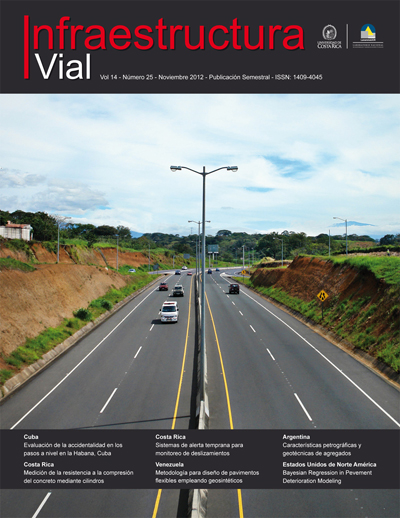Resumen
Traditional pavement deterioration modeling is normally based on historical condition data alone without incorporating the fundamental relationships between the causal factors and the response. Also, typical approaches do not quantify the uncertainty of the predicted response. This paper uses Bayesian regression for pavement deterioration modeling. This method is applied to an existing model for the prediction of rut depth progression from the AASHO Road Test. A classical regression model developed elsewhere is herein summarized and its results are then compared with those from the Bayesian regression in order to validate. A second model based on the entire dataset of the AASHO road test is used to demonstrate the advantages of such approach. The models are capable of employing expert criteria combined with historical knowledge and current observations in order estimate posterior probabilistic distributions for the regression coefficients of the mechanistic equation. The predictive model calibrated to local conditions is able to forecast within pre-specified confidence intervals the range of values for the expected deterioration. Bayesian regression modeling produces more reliable predictions for deterioration performance, which in turn, can be used to improve decision-making on road management systems##plugins.facebook.comentarios##
Descargas
Los datos de descargas todavía no están disponibles.


